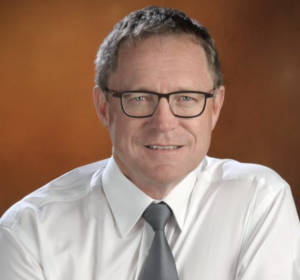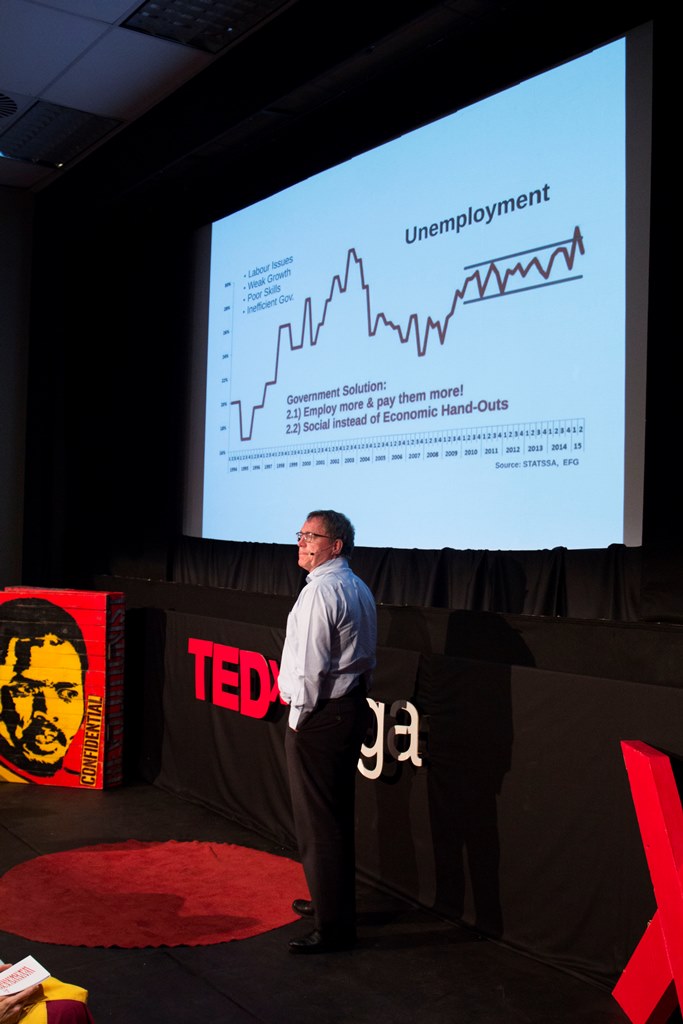South Africa is in a tight spot. There is a genuine need to protect the economically vulnerable, but this comes into conflict with the woeful economy. Slow to no growth, debt, failing state institutions, and great political divides. Economist Dawie Roodt gives an overview of what he thinks should be done.

Acclaimed economist Dawie Roodt
The fact is that South Africa is a neoliberal capitalist economy with a small welfare state as a safety net. The average person in South Africa is “unhappy” showing discontent for both of the two seemingly different approaches to the economy. It would seem that the welfare state is too small to actually aid in upward mobility or cultural export, and the capitalist economy is too constrained by, in Dawie’s words, “inept government policy.” Dawie, a well-respected and renowned economist, is somewhat of an oddball in the South African economic space. Not left-leaning nor traditionally right, he is a libertarian who emphasises the market, deregulation, and a diminishing of the public sector’s influence on the economy. According to the Vaal Triangle Campus News of the North West University, Dawie believes that economics “is not about numbers, graphs and statistics; but rather about people, and about how they react to incentives,” aligning with the laissez-faire Austrian School of Economics. So in his view South Africa is not incentivising the market to promote growth. He says, “We can see that countries do not trust us, they do not want to invest in us. We are not offering them what they need,” before adding, “I mean we don’t trust our own government.”
What Dawie thinks the problem is

General economic anxiety is a common South African woe
For Dawie the big issue, the issue that characterises South Africa’s slow growth and stale infrastructure is that the economy is not private enough. “We have grants, and we have high unemployment. We need less red tape on starting businesses, and more people starting their own businesses rather than looking for work.” This fundamental view extends to the latest issues of the day. At an Afriforum summit, he said the real solution to healthcare in South Africa is not the controversial NHI, but a completely private sector healthcare system. “It’s a nice idea, but we don’t have the money for it, allowing the private sector to develop all of our healthcare sector ensures that the market dictates quality.”
This idea of privatisation is a much-debated topic, with many concerned that the market will not necessarily care about them if they are not high-income earners. He offers Eskom as an example of bad public policy, “Eskom is becoming less centralised with increasing involvement by the private sector. This is privatisation, and it became necessary as the state failed to deliver.”
His overview of South Africa is that to achieve growth the country needs to focus on three fundamental principles:
- Protecting private property rights. This is maybe his most contentious issue as the country is so starkly divided into those who have and those who don’t. Protecting private property is a key issue diving politics too, with those in favour of land expropriation and those who oppose it.
- Promoting free trade. Essentially allowing the private sector to bloom by making South Africa an attractive place for investment and less regulation.
- Maintaining sound monetary policies. He says that “our spending and debt to GDP ratio is too high. We need monetary policy changes to address inflation, and our debt.”
He also offers the opinion that BRICS is not the powerful political force that people believe it is but rather a tool that South Africa can use, “Within BRICS there is no unifying political goal. I don’t foresee it becoming a significant global influence but I do think there is some good to it, For instance, Saudi Arabia joining is exciting. They have a lot of money and can help us with financing.”
The GNU economy
As for the current administration, Dawie doesn’t think it is the revelation that it is being touted as. “The changes in the administration do not mean that South Africa will have an easy few years ahead. Government spending is too high, I would estimate that 70% of our local authorities are not financially viable, and this requires serious policy change not a change of face.” While a libertarian, he is not suggesting the road that Argentia has gone down and makes clear, “I don’t think the government should stop spending, we just need to move the deficit. Infrastructure is not something we should necessarily cut back on, but if we privatise some areas like health, this frees the budget a bit.”

Dawie speaking at a TED event (courtesy of https://www.flickr.com/photos/135250157@N03/21973287680/)










